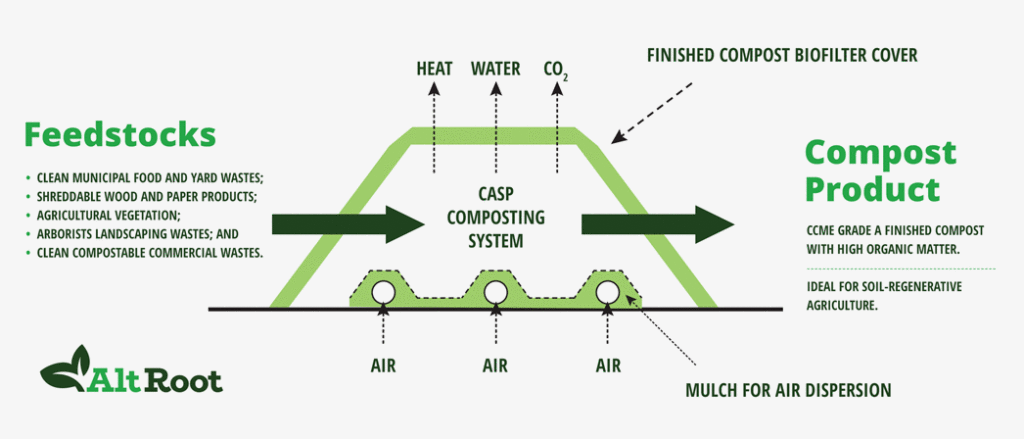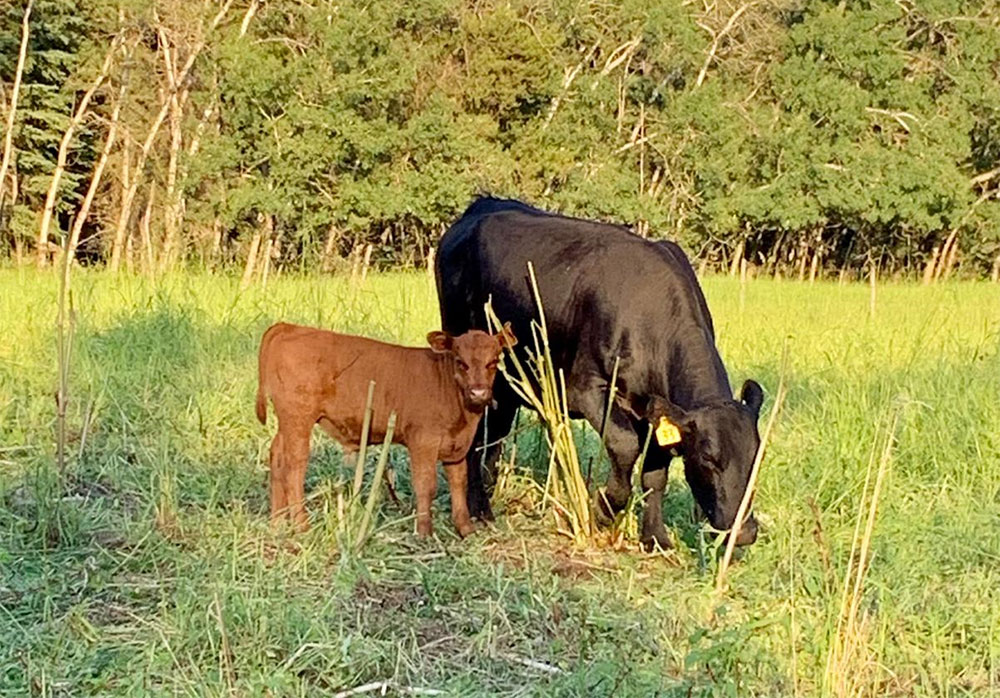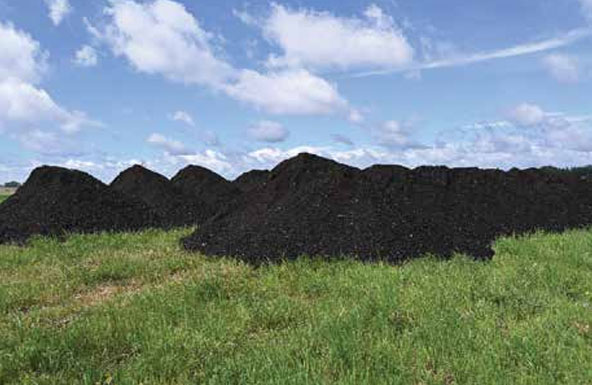For the Town of Devon, AltRoot was ultimately selected due to the proximity and accessibility of their site operations, lower costs, their highly efficient compost method and the focus on end-user agreements contributing to a bio-circular economy. This focus on the end-user ensures the compost process is sustainable and reliable. Compost facilities struggle with odour management, leachate collection, costly labour-intensive operations, accumulation of unfinished compost, especially in cold weather, which creates difficulty in sticking to the compost recipe essential to create a Grade A nutrient-balanced compost. Compost facilities can also see an accumulation of the finished product when sales are low and there are not enough end-users to take the product. The Town of Devon was familiar with the obstacles facing compost facilities. The Covered Aerated Static Pile (CASP) composting method used at AltRoot provides assurance to municipalities dependent on long-term biosolids management solutions.
Situated north of Edmonton, AltRoot’s licensed facility can handle 20,000 tonnes of organic waste annually from nearby towns and rural areas. Employing CASP methods and cuttingedge technologies, this ensures swift biodegradation while maintaining stringent environmental standards for air, odour, and water quality. Through controlled thermophilic temperatures, their team of compost operators can convert organic waste into nutrientrich compost within eight to ten weeks, primarily benefiting farmers by enhancing soil fertility.

CASP is a proven biological process with air-flow to control an oxygen-rich environment for natural decomposition of organic materials. The system enables control of temperatures for pathogen and seed removal with addition of moisture to facilitate curing of the compost. These conditions provide the optimal living conditions for microorganisms to thrive and efficiently break down organic matter in the feedstock. Aeration enables the rapid production of cured compost, minimizing land use and pollutant risks.
By diverting organic waste from conventional municipal waste streams, greenhouse gas emissions are mitigated. Landfills typically produce methane when organic matter decomposes anaerobically, contributing significantly to global emissions. Utilizing CASP composting, AltRoot effectively eliminates methane emissions while sequestering carbon into the soil, thus promoting environmental equilibrium.
With a commitment to safeguarding the environment for future generations, many of AltRoot’s founders and staff are farmers who prioritize careful handling and adherence to top-quality standards in organic waste management. The approach underscores responsible end-use practices, contributing to the emergence of a robust bio-circular economy.

AltRoot’s composting facility is strategically designed to yield compost specifically for agricultural applications, fostering soil regeneration and bolstering soil organic carbon levels. Recognizing that a substantial portion of Canada’s waste stream comprises biodegradable materials, including food and yard waste, AltRoot plays a pivotal role in diverting such materials from landfills.
The advantages of diverting organic waste from landfills extend beyond methane reduction, encompassing diminished leachate volumes and the production of valuable compost and renewable energy. AltRoot capitalizes on these benefits by transforming biodegradable organic residuals into quality compost for local farming communities, thus aligning with broader sustainability objectives.

